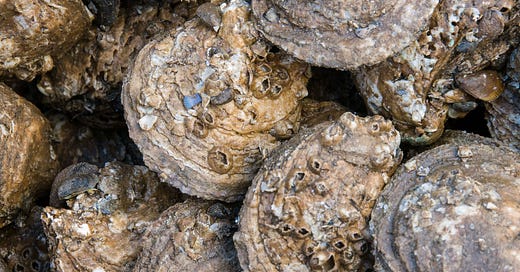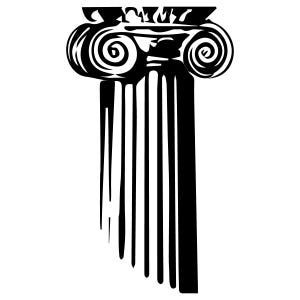
Knowing Cardinal Pell, Chaput on ‘anti-Francis’ bishops, and the hubris of oyster sexing
The Friday Pillar Post

Happy Friday friends,
It has been another sad week for the Church, losing as we did Cardinal George Pell on Tuesday to sudden heart failure, hours after he had hip replacement surgery.
I was on my way to speak at an event on Benedict XVI’s legacy when I heard that Cardinal Pell had died. I spent much of the night on the phone with friends of Pell, talking with them about the suddenness of his death.
By all accounts, Pell was chatting happily with medical staff on his way to postoperative recovery when it happened.
Pell’s death has been a very odd experience for me to process — much as Benedict’s was.
As a younger man, I knew of Pell from afar, as the larger-than-life figure he was as Archbishop of Sydney.
He was a tireless promoter of the new evangelization, something which was much more to him than merely the approved ecclesiastical buzzwords of the day. But he also had something of a reputation as a “culture warrior,” a label I don’t think did him justice.
What I admired most was not his stridency in defending Church teaching (and common sense) to the faces of militant secularists like Richard Dawkins — though that was very enjoyable to watch. It was instead the cheerfulness with which he took criticism, even deeply personal attacks.
Throughout his trial and wrongful imprisonment, his bearing showed a man of seemingly limitless capacity to absorb injustice - and hatred - without succumbing to bitterness or rage.
In recent days, close friends of the cardinal have told me about times when Pell actually encouraged them to stand down from defending him, if that would have meant them returning vitriol or animus in kind.
As someone with, admittedly, something of an explosive temper when confronted with falsehood or injustice, I find that deeply inspiring.
Pell was also something of a professional inspiration for me.
The first story I ever picked up the phone to do journalism about was in 2016, when Pillar reader Cardinal Angelo Becciu issued a Vatican-wide memo canceling a curial audit arranged by Pell’s department.
At that time, I had published two or three columns for a Catholic magazine, but I wasn’t a reporter in any sense. But legally, Becciu’s move just didn’t make sense, and I wanted to understand it.
So I got the number of someone in Pell’s Vatican department, called up, and started peppering him with questions.
“Are you a journalist?” I remember being asked on the phone. I paused for a half-second before answering, and deciding that the magazine’s editor - Luke Coppen - would probably forgive me.
From that phone call to this week, I have been working the same story ever since.
Now there are 10 people on trial in Vatican City, several Pillar readers among them, and, really, who knows how the story will end?
Professionally, I’m furious we won’t get to see Pell give evidence in court about his time in office, and about what he saw in his dealings with the Secretariat of State.
And I have to admit I am personally disappointed, too. In all my years covering Vatican finances, I never actually got to meet or speak with Cardinal George Pell — and given my fascination with a story in which he is a chief protagonist, I’m sure you understand why I wanted to.
I did get to ask an insipid first question at a Zoom press conference once, for the launch of his prison diaries, but that was it.
My frequent overtures for an interview, a quiet conversation, or even a dinner at which I promised to talk about nothing but cricket were always politely declined.
I’d hoped maybe one day, when the trial was over and the story all done, he might relent, but I’ll never know now.
There’s a lot more to say about Pell, and Vatican finances. But before we get there, here is the other news:
The News
Archbishop Charles Chaput has been, for years, a leading voice among the bishops of the United States. He was also a member of the permanent council of the Synod of Bishops in Rome and is the author of several books on the faith and the Church.
Since his retirement as Archbishop of Philadelphia in 2020, Chaput’s writings have remained a reference point for many American Catholics, and he has continued to be an acute observer of the ecclesiastical landscape.
In an interview with The Pillar this morning, Chaput talked about “polarizing” figures like Pope Benedict and Cardinal Pell, about the Second Vatican Council and the ongoing synod on synodality, and about the personality politics which have come to dominate discussions about the ministry of Pope Francis.
It is a very, very interesting conversation, in which Chaput said that in his view “synodality risks becoming a kind of Vatican III Lite; a rolling council on a much more controllable, malleable scale.”
He also addresses head-on the charge of being “anti-Francis,” an allegation often made against leading bishops in the United States:
“The American bishops have always been loyal — and candidly, very generous — to Rome, and that remains the case. Turning serious doctrinal concerns into a personality debate is just a convenient way of evading the substantive issues that need to be addressed.
“It also shows a complete ignorance of Church history. Popes come and go, even the great ones, just like bishops and everyday Christians. What matters, whatever the cost, is fidelity to Catholic teaching — and no excuses need to be offered in pursuing that.”
You are going to want to read this whole interview.
📰
—
The Pillar’s reporting brought new information to light this week in the case of Jesuit Fr. Marko Rupnik, the priest who was briefly excommunicated in 2020 for abusing the sacrament of confession to cover his sexual misconduct and later accused of serial sexual abuse.
After he was given that commission, Rupnik was accused of serially sexually abusing multiple women religious, by using both his spiritual relationship with them and his art to coerce the women into sexual acts.
Despite those allegations, which the Vatican forwarded to the Society, and which the Jesuit’s own investigator later determined to be credible, Rupnik and Jesuit Superior General Fr. Arturo Sosa jointly celebrated the dedication of the priest’s mosaics during a July 2021 Mass, attended by Jesuits from around the world.
All of this took place during a period in which Rupnik was on restricted ministry, Sosa has claimed in recent months.
Rupnik’s case continues to be a serious scandal in Rome and across the Church in Europe. The latest details, showing that the Jesuit order continued to elevate Rupnik and his work despite the allegations against him, will put more pressure on Sosa to explain what, if any, actual restrictions were imposed on the priest.
—
Since last week’s funeral of Pope Benedict XVI, Catholics in Rome and elsewhere have been talking about the publication of a memoir by Benedict’s personal secretary, Archbishop Georg Gänswein.
“Nothing but the Truth,” as the book is titled, promises to be one of the more controversial Catholic books in recent years, with apparently candid descriptions of the relationship between Benedict XVI and Pope Francis, drawing on previously confidential documents.
The book is published in Italian, but although everyone is talking about it, there is no set release date for an English edition. In the meantime, quite a few readers have been in touch, asking us what the book actually says.
So, this week Luke Coppen read the whole thing.
—
The leading Catholic bishops of Nigeria met with the country's president this week to discuss the constant violence facing Christians in the country.
While the bishops didn’t comment on the details of the meeting, local media reported that the president only partially agreed with their assessment, and stressed that he had made efforts to improve security in the northern regions hardest hit by anti-Christian attacks.
And a Nigerian newspaper reported that Buhari also told the bishops that Boko Haram — the Islamist terrorist organization which has burned villages, kidnapped children, and murdered hundreds, if not thousands of Christians, and is recognized by the UN — was “fraudulent.”
“Boko Haram was just fraudulent and a plot to destroy Nigeria,” the president claimed, according to the Premium Times newspaper. In the face of the most horrific and consistent anti-Christian violence in the world, it’s hard to imagine how the bishops reacted to that statement.
Buhari’s party, the All Progressives Congress, has also drawn criticism in recent months for nominating an all-Muslim presidential ticket for the country’s February general elections, bucking the long-standing Nigerian custom of political power sharing between Muslims and Christians - and setting the stage for political chaos this spring.
I cannot say this enough: what is happening in Nigeria matters a great deal. The worst atrocities in modern history are built upon official denial that they are even happening at all, so how the government is positioning itself on Boko Haram and other violent anti-Christian actors is very, very important to keep eyes on.
Tributes to Cardinal Pell have poured in from those who knew him personally from around the world.
I’m not exactly sure what the local protocol is for state funerals or memorials in Australia, so I can’t really express an opinion on the merits of those decisions.
But the head of the Victoria government, Daniel Andrews made what I thought was an especially graceless, though far from unique, attempt to link his decision to Pell’s trial for sexual abuse, saying that he “couldn’t think of anything that would be more distressing” for abuse survivors than state honors for Pell, who spent more than a year in solitary confinement for crimes he didn’t actually commit, but spoke afterward with unflagging sympathy and concern for victim-survivors of abuse.
Indeed, in responding to the news of Pell’s death, many people and media outlets in Australia and abroad (some Catholic publications among them) made sure to note in bold his “conviction” for sex abuse, and only grudgingly and with seeming skepticism acknowledge that he had been acquitted by the highest court in the land, which concluded that he would have been acquitted by any jury “acting rationally.”
You can read the facts, and then make your own mind up about how Pell deserves to be remembered.
—
Though Pell’s part in it has ended, the story of the Vatican financial scandal continues.
Milone was forced to resign in 2017 under threat of criminal prosecution by Pillar reader Cardinal Angelo Becciu, who accused him of “spying” (or “auditing", some might call it) the private finances of senior curial officials.
Shortly after he filed his suit in November last year, Vatican prosecutors reopened their criminal investigation into Milone. And here is the thing: the criminal investigation into Milone should, as a matter of Vatican law, put his lawsuit into abeyance until either charges are brought or the case is closed.
So why is this hearing going ahead? Well, the best read of the situation is that the Vatican’s chief prosecutor, Alessandro Diddi, is allowing it, for the time being, and for a reason. Milone has said publicly that he has files proving the corruption he says he was forced out for discovering, but he won’t hand them over until he gets his day in court.
Diddi’s office has registered an official interest in Milone’s suit, making him an effective third party to the case — which means he’ll get access to whatever Milone deposits.
If Milone doesn’t want his lawsuit dismissed, the theory goes, he’ll have to deposit everything at the hearing, and then Diddi can then pour over it for evidence to use in his other cases, while still freezing the lawsuit from progressing.
But why would he want to do that? And why, if he’s desperately trying to convict Cardinal Becciu in another trial, wouldn’t he invite Milone in as a witness, instead of threatening him with charges, too?
These are good questions.
You can read all about it here.
📰
In defense of the blank page
I’m not sure how the admissions process for American undergrad studies works, exactly, but I imagine a key part of it involves writing an essay extolling your abilities and achievements beyond the classroom.
Certainly that was the case for me in the UK, where every college applicant had to write a brief (4,000 characters) “personal statement,” the gist of which was bigging yourself up to university admissions types.
That’s all to change, apparently. This week UCAS, the centralized agency through which students apply to UK universities, announced it would do away with the free-form admissions essay after next year.
Apparently personal statements have become “stressful” for students to write, and a cottage industry of counselors and ghostwriters have made good essays “little more than barometers of middle-class privilege.” (For those who don’t know, being called “middle-class” in Britain is worse than dealing heroin to kids).
In place of the free-form statements, UCAS is developing a set of questions to “guide” and “support” students in making the best case for themselves. The agency is also going to allow “multimedia submissions” in future, which I assume means kids will soon be able to apply to Cambridge with a TikTok video.
I have to say, I was sad to read all of this.
When I was applying to universities, admittedly several decades ago, everyone knew your UCAS statement meant as much or more as your actual academic transcript. It absolutely was a stressful thing to write, and if there were companies to write it for you, I wasn’t aware of them.
But what made it fair, I thought, was it was a total blank page. What you chose to say about yourself, and how you chose to say it, meant you could convey virtually anything you liked in a way you simply can’t if you’re responding to a “supportive framework” of specific questions.
Most people I knew wrote clear and concise, almost military-style accounts of their myriad extracurricular activities, sports teams, positions in worthy student-led associations, volunteering organizations, and so on. This was the received wisdom at the time, but it wasn’t an option open to me.
My transcript was very lackluster and my extracurricular life, while rich and varied, was not suitable for boasting of.
I’d had some interesting experiences which, I thought, had made me a more rounded person. But then, as now, I don’t react well to being asked to talk about myself — I tend to lapse into aggressive sarcasm, which is what I did.
Deciding that the whole personal statement thing was an absurd exercise in hubris, I decided to mock it. Little surprise, if you know me. I wrote a litany of gradually more absurd achievements for myself, in the tone of off-hand modesty meant to appeal to admissions officers:
I read a book a day, bred championship homing pigeons, and won competitive oyster sexing tournaments. I played the bassoon with the kind of raw emotion that made grown men weep. I had registered three patents for an innovative new kind of envelope. I was the pseudonymous author of a successful series of “chick lit” novels, and I had summited Everest.
I was, I told them, beloved in the Amazon, where I traveled extensively, but known and feared in the bars of Ulaanbaatar by the name “Whispering Death.”
I think I capped the thing off by claiming I could communicate on a near telepathic level with babies and puppies. It was nonsense, and towering testimony to my true character as a cavalier smart-arse.
I did not get into Oxford, believe it or not. But did get a spot at a perfectly respectable college where I happily studied theology for the next three years — and I am convinced it was my personal statement which did it: I had no grades to boast of, and no worthy activities to cite, but I did have a blank page to use any way I wanted and, I think, I amused the admissions team enough to get a result.
During the first week of term, I was asked to step into the admissions office and I was moderately worried someone had decided to take the whole thing too seriously. Instead, I had a nice 10 minute conversation with the department head, who had just wanted to meet me. The subject of my personal statement didn’t come up until I was leaving.
“One more thing,” he asked. “Oyster sexing?”
“Yes,” I replied with utter conviction. “I can tell the difference.”
I’m not claiming to have been a great student, or a great person, but it seems to me that showing what you can do with a blank page should count for something. If nothing else, sometimes it’s the only hope for people like me.
See you next week,
Ed. Condon
Editor
The Pillar






